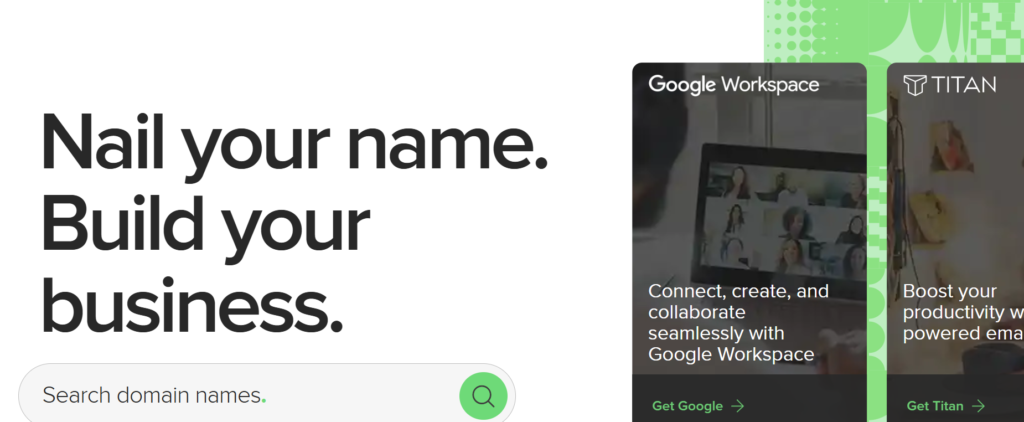Website Hosting: The Ultimate Advantage for 2025

Compare top hosting services based on performance, security, pricing, and ease of use. Find the perfect hosting plan for your website today.
How can I open my website?
Introduction to Website Hosting
In today’s digital world, having a reliable website hosting service is essential for businesses, bloggers, and anyone looking to establish an online presence. But behind every successful website hosting is a crucial component often overlooked — website hosting. Proper website hosting is the foundation of your online success.
Website hosting is the service that allows individuals and organizations to make their websites accessible on the internet. Essentially, hosting providers rent out server space where your website’s files are stored and served to visitors when they type in your web address. With the right hosting, your website can load quickly, stay secure, and be accessible to visitors 24/7. On the other hand, poor hosting can lead to slow load times, security vulnerabilities, and even downtime that can hurt your reputation and bottom line.
Investing in top-tier website hosting can significantly improve your site’s loading speed, uptime, and security, making it a worthwhile investment for anyone serious about their online presence.
When choosing website hosting, consider the scalability options to ensure that your site can grow alongside your business needs.
Choosing the right website hosting is vital to ensure that your site performs optimally and meets the needs of your users. The importance of website hosting cannot be overstated, as it directly influences your site’s performance and security.
Moreover, website hosting with excellent customer support can help resolve issues quickly, minimizing potential downtime.
Always look for website hosting providers that offer robust performance metrics to track your site’s success.
Next, confirm that your website hosting solution is compatible with essential tools, such as content management systems and e-commerce platforms.

Quality website hosting can also enhance your site’s SEO by ensuring fast loading times and minimal downtime, which search engines favor.
A comprehensive website hosting plan should include regular updates and maintenance to keep your website secure and efficient.
Key Metrics to Measure Performance & Speed:
Additionally, look for website hosting options that provide detailed analytics to help you understand your site’s performance.
For businesses, selecting the right website hosting provider could be the difference between online success and failure.
Evaluating your website hosting requirements beforehand can ensure you select a provider that meets your needs and budget.
Integrated website hosting solutions can streamline your workflow and improve overall efficiency.
When evaluating website hosting options, always consider how the provider manages uptime and server response times. Reliable website hosting ensures that your site remains accessible and performs efficiently for visitors.
Quality website hosting solutions incorporate features such as uptime guarantees and performance metrics that are critical for maintaining your site’s integrity.
Each website hosting provider has unique strengths and weaknesses, so it’s critical to choose one that aligns with your specific needs.
Investing in robust website hosting can make a significant difference in how quickly your site loads and how well it withstands high traffic.
Ultimately, your choice of website hosting can support your brand’s online reputation and influence how effectively you reach your audience.
Additionally, many website hosting providers now offer enhanced security features, making them a safer choice for businesses.
Choosing website hosting with integrated marketing tools can enhance your online visibility and drive more traffic to your site.
With website hosting, you can ensure your site is regularly backed up, providing peace of mind against potential data loss.
Website hosting that offers mobile optimization features can help your site perform better across various devices.
Page Load Time
This refers to how quickly your website loads for visitors. Ideally, your website should load in under 3 seconds. Many hosting providers optimize their servers for fast load times by offering features like SSD (Solid State Drive) storage, caching mechanisms, and content delivery networks (CDNs) that reduce latency.
Uptime Percentage
Uptime is the amount of time your website is accessible to visitors without any interruptions. A good hosting provider will offer at least 99.9% uptime, ensuring your website remains available most of the time. Even a small amount of downtime can lead to lost visitors and revenue.
Server Response Time
This is the time it takes for the server to respond to a request from the browser. High-quality hosting providers will have servers that react in milliseconds, which is crucial for maintaining optimal website performance. The lower the response time, the faster your website can load and serve content.
CDN (Content Delivery Network)
Some hosting providers offer built-in CDN services that distribute your website’s content across multiple global servers. This allows visitors to access your website from a server closer to their location, reducing load times and improving overall performance, especially for international audiences.
Caching Options
Hosting providers with advanced caching options can significantly boost your website’s speed. Server-side caching, along with plugins that cache content for repeat visitors, helps reduce server load and accelerates load times for frequently accessed content.
Hosting Providers Comparison:
- Provider A: Offers SSD storage, a global CDN, and guarantees 99.99% uptime with an average page load time of 1.8 seconds.
- Provider B: Features SSD storage and a robust CDN but has a slightly higher server response time and average load time of 2.3 seconds.
- Provider C: This provider provides HDD storage (slower than SSD), no integrated CDN, and an average page load time of 3.5 seconds.

Security Features
SSL Certificates
An SSL (Secure Sockets Layer) certificate encrypts the data transferred between your website and its visitors, ensuring sensitive information like credit card details or personal data remains protected. A hosting provider should offer free SSL certificates or the option to install them easily. Websites with SSL display „https://“ in their URL, which boosts credibility and SEO rankings.
DDoS Protection
Understanding the security features that come with your website hosting is essential. Look for hosting that provides SSL certificates and DDoS protection.
Distributed Denial of Service (DDoS) attacks overwhelm your server with traffic, causing your website to slow down or become unavailable. Hosting providers that offer built-in DDoS protection can detect and mitigate these attacks before they affect your site. This is especially important for websites that experience high traffic or are in competitive industries.
Firewall Protection
A web application firewall (WAF) filters and monitors HTTP traffic between your website and the internet, blocking malicious traffic and preventing unauthorized access. Hosting providers with integrated firewalls provide an extra layer of protection against hacking attempts, cross-site scripting (XSS), and SQL injection attacks.
Also, website hosting with automated malware scans can significantly enhance your site’s security posture.
Regular backups provided by your website hosting service can save you from the potential disaster of data loss.
Moreover, many website hosting providers offer domain management tools that simplify the process of managing your web presence.
With reliable website hosting, you can easily set up email addresses associated with your domain, enhancing your business’s professionalism.
Automated Malware Scans
Having secure FTP access is another advantage of quality website hosting, ensuring that your file transfers are safe and encrypted.
Finally, consider selecting a website hosting provider that offers a clear and transparent pricing structure to avoid any hidden fees.
Also, website hosting that includes brute force protection can help safeguard against unauthorized access attempts.
Malware can infect websites through vulnerabilities in code, plugins, or third-party applications. Hosting providers with automated malware scanning will regularly check your website for malicious code and alert you if any issues are detected. Some services may even offer malware removal, ensuring your site remains clean and safe.
Regular Backups
Backups are essential for disaster recovery. If your website is hacked or suffers data loss, regular backups allow you to restore your site to a previous, unaffected state. A good hosting provider will offer automatic daily, weekly, or on-demand backups and make it easy for you to recover your site with minimal downtime.
Two-factor authentication (2FA)
Two-factor authentication adds a security step when logging into your hosting account or website’s admin panel. With 2FA, even if your password is compromised, an attacker won’t be able to access your account without the secondary authentication factor, typically a code sent to your phone or email.
Secure FTP Access (SFTP)
When uploading files to your website, secure FTP (SFTP) is preferable to standard FTP because it encrypts the data being transferred. This ensures that sensitive information like login credentials or content files is not intercepted by hackers during the transfer process.
When comparing website hosting options, consider factors such as customer support and ease of use.
Brute Force Protection
Brute force attacks occur when hackers attempt to guess your website’s login credentials through repeated login attempts. Some hosting providers offer brute force protection, which can block IP addresses after a certain number of failed login attempts, preventing unauthorized access to your website.
Hosting Providers Comparison:
- Provider A: Offers free SSL certificates, DDoS protection, daily backups, and automated malware scans. Strong firewall and 2FA support.
- Provider B: Includes SSL and DDoS protection, but backups are only weekly, and malware scans are available as a paid add-on.
- Provider C: Offers SSL, basic firewall protection, and manual backups, but lacks DDoS protection and 2FA support.

Pricing & Plans
Shared Hosting
Shared hosting is often the most affordable option, making it ideal for small websites, blogs, or personal portfolios. In this plan, your website shares server resources (CPU, RAM, bandwidth) with other websites, which helps keep costs low but may impact performance if other websites on the same server experience high traffic.
- Pros: Low cost, easy to use for beginners.
- Cons: Limited resources, and slower performance during peak traffic.
Price Range: $2.99 – $10 per month.
VPS Hosting (Virtual Private Server)
VPS hosting offers a middle ground between shared and dedicated hosting. You still share a server with other websites, but your site is allocated dedicated resources, ensuring better performance and stability. This option is suitable for growing websites that need more power without the full cost of dedicated hosting.
- Pros: More control, better performance, scalable.
- Cons: More expensive than shared hosting, requires some technical knowledge.
Price Range: $20 – $100 per month.
Dedicated Hosting
With dedicated hosting, you rent an entire server solely for your website, giving you full control over server resources and configurations. This type of hosting is ideal for large websites, e-commerce stores, or businesses with high traffic that require maximum performance and security.
- Pros: Exclusive use of server resources, high performance, enhanced security.
- Cons: High cost, requires technical expertise to manage.
Price Range: $80 – $300+ per month.
Cloud Hosting
Cloud hosting is a flexible solution that uses a network of servers to distribute resources dynamically. This means your website can scale resources up or down based on demand. It’s an excellent option for websites that experience fluctuating traffic or need high reliability and uptime.
- Pros: Scalability, high uptime, pay-as-you-go pricing.
- Cons: Costs can add up as your website grows, and pricing is less predictable.
Price Range: $10 – $100+ per month, depending on usage.
Managed Hosting
Managed hosting is a premium option where the hosting provider takes care of all the technical aspects, such as security, updates, backups, and performance optimization. This is ideal for businesses or website owners who want a hassle-free hosting experience.
- Pros: Hands-off maintenance, high-level support.
- Cons: Higher cost compared to unmanaged plans.
Price Range: $30 – $200+ per month.
Renewal Rates
It’s important to note that many hosting providers offer discounted prices for the first term (e.g., first year), but renewal rates are often much higher. When comparing pricing, make sure to check the renewal rates to avoid surprises later.
- Example: Provider A offers an introductory price of $2.99/month for shared hosting, but the renewal rate is $7.99/month.
Additional Costs
Ultimately, investing in a solid website hosting solution is crucial for any business aiming for online success.
Some hosting providers may charge extra for certain features such as:
- Domain registration/renewal.
- Advanced security features (e.g., malware removal, advanced firewalls).
- Premium support or priority assistance.
- Backup services (some providers offer basic backups for free, while others charge for automated or more frequent backups).
Hosting Providers Comparison:
- Provider A: Shared hosting starts at $3.99/month with a renewal rate of $9.99/month. Includes a free domain for the first year and an SSL certificate.
- Provider B: VPS hosting starts at $25/month, with no free domain but includes automatic backups and premium support.
- Provider C: Cloud hosting starts at $15/month, with scalable resources based on usage, but no free SSL or domain included.

Ease of Use & User Interface
Control Panel (cPanel, Plesk, or Custom Interface)
The control panel is where you manage all aspects of your hosting account. Most hosting providers use cPanel or Plesk, which are well-known, user-friendly control panels that offer a graphical interface for managing websites, files, databases, email accounts, and more. Some providers offer custom interfaces that may be tailored to specific user needs.
- cPanel: Widely used, with a clean, organized layout. Ideal for beginners and advanced users alike.
- Plesk: Another popular control panel, particularly for managing multiple websites, with an easy-to-navigate dashboard.
- Custom Panels: Some providers develop their custom panels, which can be more streamlined or specifically suited for certain tasks. However, they may have a learning curve compared to the familiar cPanel or Plesk.
Website Setup & Onboarding
A good hosting provider will offer a seamless website setup process with clear onboarding. This can include:
- One-click installations for popular platforms like WordPress, Joomla, or Magento, make it easy to get started with your site.
- Guided tutorials or setup wizards to help beginners navigate the initial setup.
- Pre-installed CMS (Content Management System) options for users who want a ready-to-go website right from the start.
Website Builder Integration
Some hosting providers include integrated drag-and-drop website builders like Weebly, Wix, or their proprietary tools, allowing users to create and design websites without needing to code. This feature is excellent for users who want a quick and straightforward way to build a professional-looking site without relying on a developer.
- Pros: No coding skills required, visual design interface, simple editing tools.
- Cons: Limited customization options for advanced users.
Domain Management
Managing domains (registering, transferring, or updating DNS settings) should be simple and intuitive. Look for hosting providers that offer:
Look for website hosting providers that offer a user-friendly control panel for managing your website efficiently.
Website hosting should also facilitate easy domain and file management, ensuring you can handle all aspects of your site seamlessly.
- Easy domain registration: The ability to search, purchase, and manage domain names directly from the hosting dashboard.
- DNS management: An interface that makes updating DNS records easy, including adding or modifying A, CNAME, or MX records.
- Domain transfer: A smooth process for transferring domain ownership between registrars, with clear steps and minimal downtime.
File Management
A good hosting control panel will provide easy access to file management features:
- File Manager: A simple file management tool for uploading, organizing, and editing website files directly from your browser, without needing FTP access.
- FTP/SFTP Access: For more advanced users, hosting providers should offer FTP (File Transfer Protocol) or SFTP (Secure FTP) access, allowing secure and efficient file transfers to and from the server.
Backup and Restore Tools
Many hosting providers make it easy to back up your website files, databases, and emails. Look for providers that offer:
- Automated backups: Daily, weekly, or on-demand backups that are accessible through the control panel.
- One-click restore: A feature that allows you to quickly restore your website to a previous version in case of errors or issues.
Email Setup & Management
If you need custom email addresses, the hosting provider should offer easy-to-use email management tools.
Advanced User Features
For more experienced users, having access to advanced features within the control panel is important. These might include:
- Access to SSH (Secure Shell) for command-line management.
- Database management (MySQL, PostgreSQL) with simple tools to set up and manage databases.
- Git integration for developers working on version control.
Hosting Providers Comparison:
- Provider A: Uses a highly intuitive custom interface with one-click installs for WordPress and easy domain management. Includes built-in website builder and automated daily backups. cPanel available for advanced users.
- Provider B: Offers a Plesk control panel with streamlined onboarding and basic email management. Lacks integrated website builder but offers strong FTP and SSH access for advanced users.
- Provider C: Features standard cPanel, but the interface can feel cluttered. Offers one-click WordPress installs but lacks a built-in website builder. Domain management is not as intuitive compared to competitors.

By choosing the right website hosting, you can enhance your site’s functionality and user experience significantly.
Moreover, a good website hosting plan should include easy scalability options to accommodate growing traffic.
Website Hosting: The Ultimate Advantage for 2025

Compare top hosting services based on performance, security, pricing, and ease of use. Find the perfect hosting plan for your website today.

